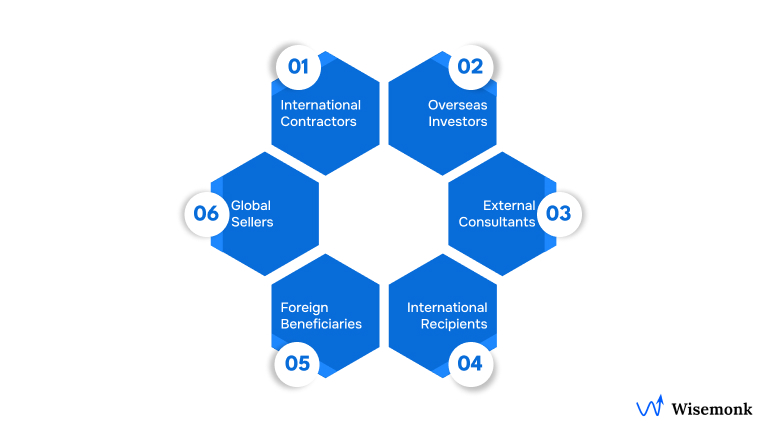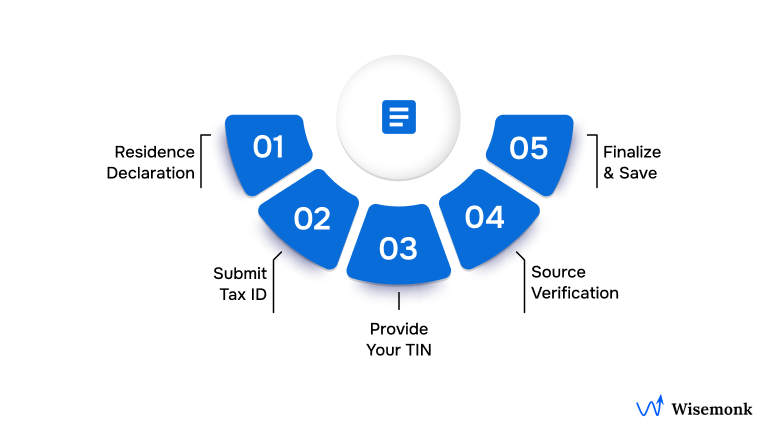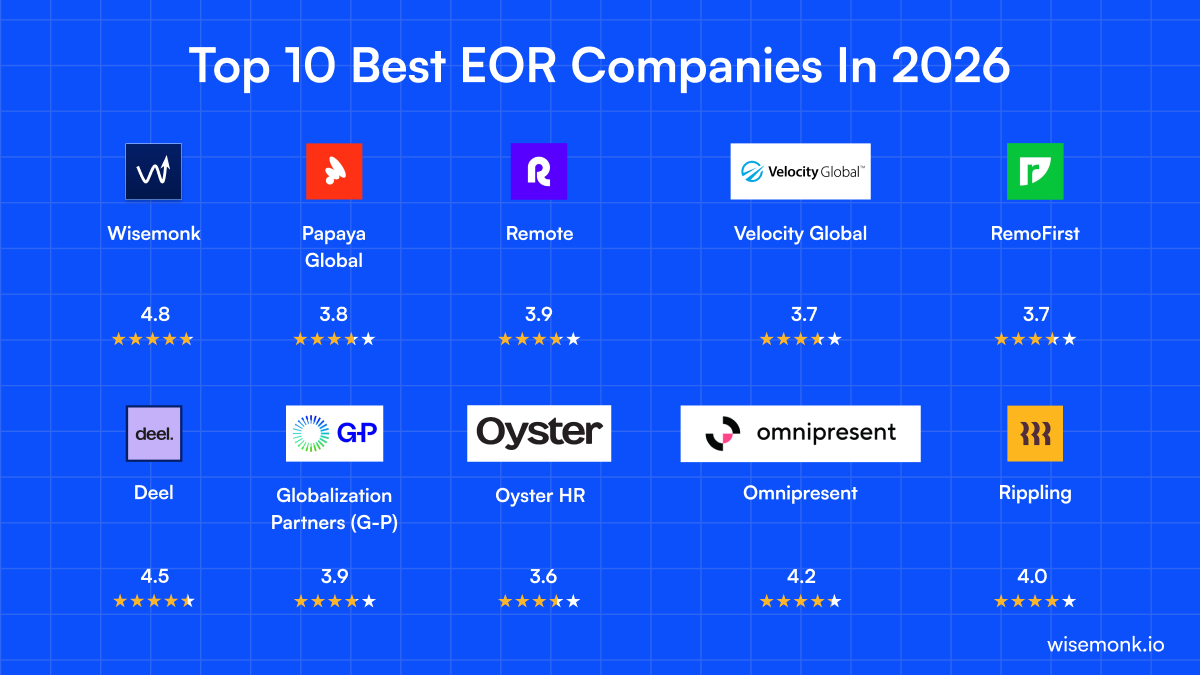- Non-U.S. individuals use the W-8BEN form to certify their foreign status and claim tax treaty benefits for reduced U.S. tax withholding.
- Form W-8BEN-E is for foreign entities (corporations, partnerships) to certify their foreign status and claim tax treaty benefits.
- Failure to submit the W-8BEN form results in a 30% withholding tax on U.S. payments.
- The W-8BEN form must be updated every three years or whenever your circumstances change.
- The main difference between Form W-8BEN and W-8BEN-E is that W-8BEN is for individuals, while W-8BEN-E is for foreign businesses.
- Not submitting the correct form can lead to higher withholding taxes on U.S.-sourced income.
What if you're a freelancer based in India, providing services to clients in the U.S.? You might find yourself subject to tax regulations in both countries, leading to the challenge of double taxation. How can you avoid this issue and ensure you're not paying more than necessary? The solution lies in the W-8BEN form.
This U.S. IRS document allows non-U.S. individuals, such as freelancers, consultants, and investors, to certify their foreign status and claim any applicable tax treaty benefits, ensuring that U.S. taxes are withheld accurately and not overpaid.
By filing the W-8BEN, you can streamline your tax obligations, stay compliant, and potentially reduce or eliminate unnecessary U.S. tax deductions.
In this blog, we’ll explore what the W-8BEN form is used for, its significance, its role in simplifying tax compliance, and how to ensure your global workforce is properly managed.
Drive Link : Understanding the Use of W-8BEN Form and Its Importance
What is W-8BEN?
The W-8BEN form is used by Nonresident Aliens (NRAs) to certify foreign status for U.S. tax reporting. NRAs are generally taxed at a 30% withholding rate on various types of U.S.-sourced income, such as interest, dividends, rents, royalties, premiums, annuities, and compensation for services performed outside the U.S.
Key points about the W-8BEN form:
- Required for payments made to NRAs for services performed outside the U.S.
- Helps reduce or eliminate U.S. tax withholding, thanks to tax treaty benefits.
- Ensures correct withholding of U.S. taxes on income like interest, dividends, royalties, and compensation.
- The W-8BEN-E is used for entities, while individuals use the W-8BEN form.
But how does submitting this form benefit you? Let's find out
What is the W-8BEN Form Used For?
When a foreign individual submits the W-8BEN form, the actual U.S. withholding tax rate on income such as dividends, interest, and royalties depends on the tax treaty between the U.S. and their country of residence. The default withholding tax rate is 30%. If you are in a country without a treaty with the U.S., you will be required to pay the full tax withholding amount.
Here are examples of reduced rates for a few selected countries from the IRS:
The Percentage of Tax Withholding for Different Countries According to Their Treaty
It certifies the individual or entity as a non-U.S. taxpayer, enabling them to claim reduced withholding tax rates under the tax treaty. This often lowers the default U.S. withholding to as little as 0% depending on the income type
Now, let's understand who needs to file the form.
Who Needs to File W-8BEN

- Foreign freelancers, consultants, and remote workers paid by U.S. companies or clients
- Foreign investors earning dividends or interest from U.S. stocks, bonds, or mutual funds
- Foreign professionals providing independent personal services to U.S. clients
- Non-U.S. students or scholars in the U.S. receiving scholarships, grants, or stipends from U.S. sources
- Any non-U.S. individual receiving royalties, rents, or other passive income from U.S. sources
- Foreign sole proprietors or individuals selling digital products or services to U.S. customers
Note: These individuals must submit the W-8BEN to the U.S. payer (not the IRS) before receiving payments to avoid higher withholding taxes.
Now, let's understand how failing to submit the W-8BEN form can affect you.
Consequences of Non-Submission of W-8BEN Form
Failure to submit the W-8BEN form can lead to a 30% withholding tax on the payments made to non-U.S. individuals. This tax is imposed by U.S. tax law and can significantly impact payment amounts.
How Often Should You Obtain W-8BEN Forms
You should obtain a new W-8BEN form for each Nonresident Alien (NRA) payment made to ensure compliance with IRS regulations. As per IRS guidelines, prior year W-8BEN forms cannot be used in subsequent years, as NRA statuses can change annually or even during a calendar year.
How to Fill W-8BEN Forms

Filling out the W-8BEN form is simple when you break it down into steps. Follow this guide to ensure everything is completed correctly.
1. Enter Your Tax Residence Information
Confirm your tax residence by providing your address in your home country.
- Action:
- Enter your tax address in the Tax Residence section.
- Do not select the U.S. as your tax residence.
2. Provide Your Taxpayer Identification Information
Confirm your non-U.S. taxpayer status and provide your identification details.
- Action:
- Enter your legal name.
- Select your tax classification (individual, corporation, or partnership).
- For individuals: Provide your date of birth and country of citizenship.
- For entities: Provide the country of incorporation.
3. Provide Your Tax Identification Number (TIN)
Enter your Tax Identification Number (TIN), which is used for tax reporting in your home country.
- Action:
- Enter your TIN
- Review the Tax Certification and confirm that you are not performing work in the U.S.
4. Review the Certification and Statement of Source
Review and certify that your status has not changed and you are working outside the U.S.
- Action:
- Electronic signature with your legal name and the current date.
- Confirm that your status has not changed since your last submission.
5. Finalize and Save
Once everything is entered and reviewed, finalize your submission.
- Action:
- Click "Save" to submit the form.
- Once completed, you'll see a "Completed" label next to each section.
Additional Considerations:
- Request Completion: Employers should ask contractors to complete the W-8BEN before making payments.
- Provide Guidance: Offer instructions to ensure accuracy when filling out the form.
- Review for Accuracy: Double-check the information before submitting.
- Maintain Records: Keep a copy of the completed form for future reference.
- Renewal and Updates: Update the form every three years or when your circumstances change.
Following these steps ensures your W-8BEN form is correctly completed, helping maintain tax compliance.
Now, let's understand the types of W-8 forms
Which W8 Form Should You Use?
Several W-8 forms exist for different purposes.
- Form W-8BEN: This form is used by non-U.S. individuals to certify their foreign status and claim any tax treaty benefits to reduce or eliminate U.S. tax withholding on income received from U.S. sources.
- Form W-8BEN-E: This form is used by foreign entities (such as corporations or partnerships) to certify their foreign status and claim any tax treaty benefits to reduce or eliminate U.S. tax withholding.
- Form W-8ECI: For nonresident aliens conducting business or trade in the U.S. (other than personal services). If you are receiving compensation for personal services in the U.S., use Form 8233 or W-4 instead.
- Form W-8EXP: Used by foreign governments or specified groups, such as foreign private foundations, to claim a reduction in tax withholding.
- Form W-8IMY: Used by foreign intermediaries, flow-through entities, or certain U.S. branches for tax withholding and reporting.
Each form serves a different purpose based on the income type and the entity or individual’s tax status.
Now, let's explore the difference between the W-8BEN form and the W-8BEN-E form.
Difference Between Form W-8BEN and Form W-8BEN-E?
The main difference between Form W-8BEN and Form W-8BEN-E lies in the type of filer. Non-U.S. individuals use Form W-8BEN, while Form W-8BEN-E is specifically for foreign entities such as corporations or partnerships. Both forms help claim tax treaty benefits and reduce withholding tax on U.S. income.
Both forms are subject to the same 30% U.S. withholding tax rate unless a tax treaty applies.
Conclusion
In conclusion, understanding and correctly filing the appropriate W-8 form is crucial for non-U.S. individuals and entities to ensure compliance with U.S. tax laws and minimize withholding tax. Whether you're filing Form W-8BEN as an individual or Form W-8BEN-E as a foreign entity, both forms play an essential role in certifying foreign status and claiming tax treaty benefits. By navigating these forms correctly, you can ensure tax efficiency and avoid unnecessary penalties.
Tax compliance for foreign entities can be complex, especially for global businesses. Managing tax documentation, withholding rates, and staying updated on tax laws can be overwhelming. Wisemonk's Employer of Record (EOR) services provide a seamless solution to handle compliance and payroll, allowing companies to scale without administrative hassles.
With Wisemonk's EOR service, businesses can easily manage their global workforce while ensuring full compliance with local tax laws and regulations. Contact us today to streamline your global hiring and tax compliance processes!
Frequently asked questions
What is the W-8BEN form used for?
The W-8BEN form is used by non-U.S. individuals to certify their foreign status and claim tax treaty benefits to reduce or eliminate U.S. tax withholding on income received from U.S. sources.
Who should use Form W-8BEN-E?
Form W-8BEN-E is for foreign entities such as corporations or partnerships. It serves the same purpose as the W-8BEN, but for businesses instead of individuals.
What happens if I don’t submit the W-8BEN form?
Failure to submit the W-8BEN form can result in a 30% withholding tax on payments made to non-U.S. individuals or entities, as required by U.S. tax law.
How often should I update the W-8BEN form?
The W-8BEN form should be updated every three years or whenever your circumstances change. A new form is required to ensure accurate tax reporting.
What is the difference between Form W-8BEN and Form W-8BEN-E?
Form W-8BEN is for non-U.S. individuals, while Form W-8BEN-E is for foreign entities like corporations or partnerships. Both forms certify foreign status and help claim tax treaty benefits.
What is the penalty for not submitting the correct W-8BEN form?
Failing to submit the correct W-8BEN form can result in a 30% withholding tax on U.S. payments to non-U.S. individuals or entities, as mandated by U.S. tax law.
Is W8BEN necessary?
Yes, the W-8BEN form is necessary for non-U.S. individuals who earn income from U.S. sources. It certifies foreign tax residency, helps avoid or reduce double taxation under tax treaties, and ensures the correct amount of U.S. tax withholding is applied.

.png)
%20(1).webp)
